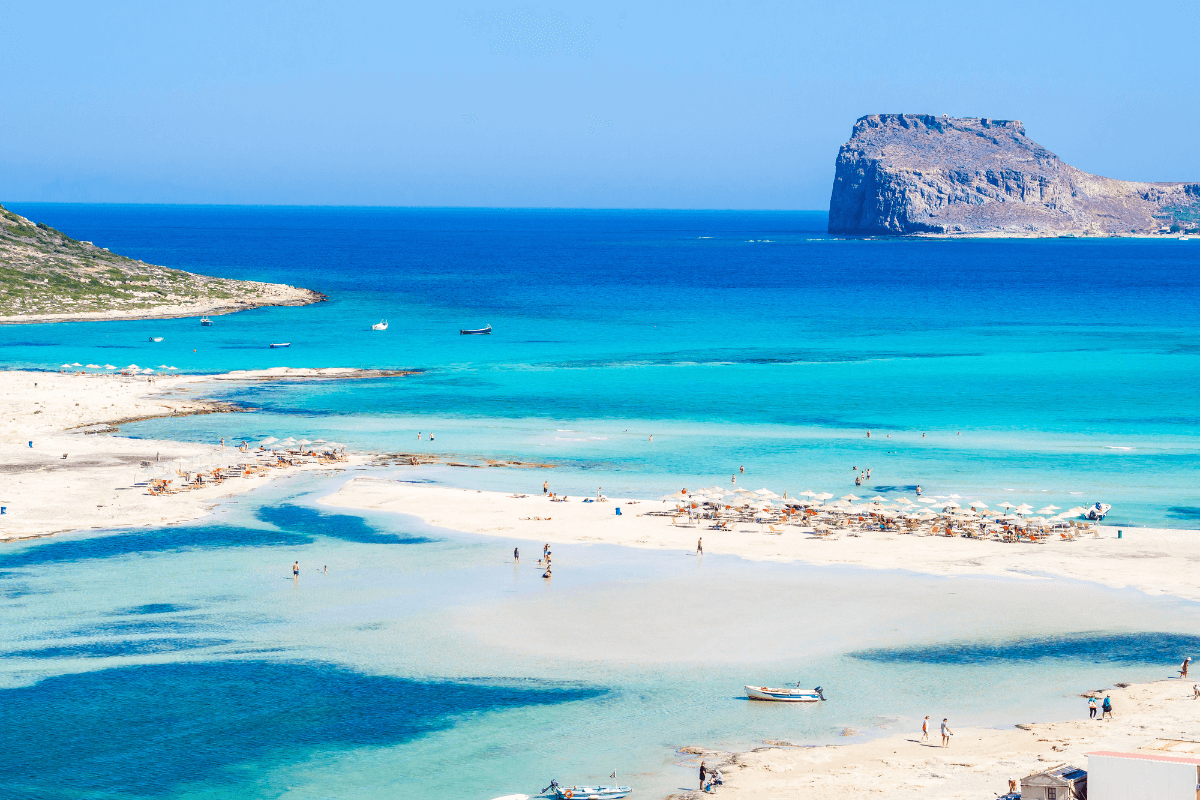Someone from Crete is called a Cretan, historically they were called Cretian but this term is no longer used. The country is not massively ethnically diverse and the vast majority of native people are ethnically Greek, though there is of course a considerable migrant population. This makes the question of what is a Cretan a bit simpler.
Someone from Crete is a Cretan, then, crucially not a Cretian.
Ethnically, of course, people from Crete are Greek, and Crete is the largest and most populous of the Greek islands.
Around 624,000 people live there over an area of around 3,260 square miles.
Let’s find out more.

What is someone from Crete called?

Someone from Crete is called a Cretan.
They are not Greek and not Cretian, but Cretan.
Of course, the island itself is under the administration of the Greek government and the people of the island are ethnically Greek, but Cretan identity is distinct from broader Greek identity in many ways.
Importantly, they do speak a distinct dialect of Greek, though it doesn’t differ all that much from Standard Greek.
That said, while mutual intelligibility is high, it is not absolute and there is some level of difference.
Cretan, then, refers both to the people of Crete and the language.
But this is of course not completely limited to the island itself.
Many Cretans have settled in mainland Greece and there is also a fairly broad Cretan diaspora across the world.
Cretan is even still rarely spoken by Cretan Turks, all of whom left the island in the 19th and 20th Centuries.
Many Cretans, then, do not live in Crete at all, but are descended from people who emigrated from the island in the recent past.
So, someone from Crete is a Cretan, but it may also be the case that many people outside of Crete also consider themselves to be Cretan in some way.
This is interesting because Cretan is not in itself an ethnic identity—all Cretans today are ethnically Greek.
But there are also many non-Greeks who consider themselves to be Cretan due to their ancestry.
The simple answer, though, is again that someone who today lives on the island of Crete is a Cretan.
But the question always becomes a bit more muddled as you have both nationality and ethnicity.
In any case, Cretans today are almost exclusively Greek, but there are also Cretans spread throughout the world and there are many non-Greeks living in Crete.
Where does the name “Crete” come from?
The name “Crete” first appears in this modern form in the 15th Century BC, in the texts of Mycenaean Greeks.
The precise etymology of the term is unknown, though a form of it dates to at least the time of Homer.
There are a couple of theories about its origin.
One suggests that it derives from a Luwian word, though a hypothetical one of which we have no actual record.
This word would be kursatta, meaning the island of cutting silver.
Another theory posits that the name derives from an Ancient Greek word meaning strong or powerful, given that Crete was an incredibly powerful maritime nation in classical antiquity.
Though we have countless different forms of the word in many different languages, like Arabic, Latin, Italian, and Hebrew, we just don’t know what the etymology of the name Crete is, and we may never be sure.
What nationality is a Cretan?
Cretans are Greek citizens, and so their nationality is Greek.
Again, though there are significant cultural differences between Crete and Greek on the whole, a person from Crete is still a Greek in the legal sense.
Crete has local governments, naturally, and has local elections, but the country as a whole is ultimately under the administration of the Greek state.
Greece is one of the oldest cultural identifiers in the western world, but the country as we know it today has only existed for a couple of centuries.
It was, until 1832, a part of the Ottoman Empire, when it was finally recognized as a fully independent kingdom in the Treaty of Constantinople.
However, many Greek speaking and ethnically Greek places, like Crete, remained under Ottoman rule.
In the Greco-Turkish War of 1897, Crete was finally liberated and became an autonomous state under the Prince of Greece.
It would again change hands several times over the coming years, but in 1913 the Sultan Mehmed V would finally completely relinquish control of the island and it became a part of Greece.
Is it Cretan or Cretian?
The term in the modern day is certainly Cretan.
There is no debate about this among any people in Crete or Greece today.
The modern term is Cretan, and this is what you should always use to refer to Cretan people.
However, Cretian was used in the past and in essentially the same way, to mean someone from Crete.
It stopped being used in favour of Cretan, though, and fell out of use entirely by the 20th Century.
So, Cretans are both ethnically Greek and are the island is administered by the Greek government.
All you really need to know is that someone from Crete is a Cretan—they are not a Greek or a Cretian.
The island may not be an independent sovereign state, but at the same time Cretan culture is not simply interchangeable with Greek culture.
A Cretan may feel themselves to be very distinct from Greek culture on the whole.
More in Demonyms
- What Do You Call Someone From Afghanistan?
- What Do You Call Someone From Algeria?
- What Do You Call Someone From Argentina?
- What Do You Call Someone From Australia?
- What Do You Call Someone From Azerbaijan?
- What Do You Call Someone From Bangladesh?
- What Do You Call Someone From Barbados?
- What Do You Call Someone From Belgium?
- What Do You Call Someone From Botswana?
- What Do You Call Someone From Crete?
- What Do You Call Someone From Denmark?
- What Do You Call Someone From Ecuador?
- What Do You Call Someone From Egypt?
- What Do You Call Someone From El Salvador?
- What Do You Call Someone From Fiji?
- What Do You Call Someone From Finland?
- What Do You Call Someone From France?
- What Do You Call Someone From Ghana?
- What Do You Call Someone From Greece?
- What Do You Call Someone From Greenland?
- What Do You Call Someone From Hong Kong?
- What Do You Call Someone From Iceland?
- What Do You Call Someone From India?
- What Do You Call Someone From Ireland?
- What Do You Call Someone From Israel?
- What Do You Call Someone From Japan?
- What Do You Call Someone From Jersey?
- What Do You Call Someone From Jerusalem?
- What Do You Call Someone From Jordan?
- What Do You Call Someone From Kazakhstan?
- What Do You Call Someone From Laos?
- What Do You Call Someone From Malta?
- What Do You Call Someone From Myanmar?
- What Do You Call Someone From Niger?
- What Do You Call Someone From Pakistan?
- What Do You Call Someone From Panama?
- What Do You Call Someone From Peru?
- What Do You Call Someone From Rwanda?
- What Do You Call Someone From Singapore?
- What Do You Call Someone From Sri Lanka?
- What Do You Call Someone From Sweden?
- What Do You Call Someone From Switzerland?
- What Do You Call Someone From Thailand?
- What Do You Call Someone From The Isle of Wight?
- What Do You Call Someone From The Ivory Coast?
- What Do You Call Someone From The Netherlands?
- What Do You Call Someone From Uzbekistan?
- What Do You Call Someone From Vatican City?
- What Do You Call Someone From Wales?
- What Do You Call Someone From Zimbabwe?

